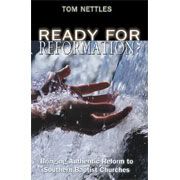One of the values of Dr. Nettles’ new book is the vast amount of historical research that it weaves together. For example, he cites Paige Patterson’s writing in the Shophar Papers of 1980 as an “early reformation proposal.” Nettles writes:
Patterson noted that “denominational executive offices can become ‘Protestant Meccas’ to which all must bow, with ‘programs’ being substituted for righteousness.” Any questions or doubts make a person susceptible to anathemas by “those who claim to be ‘loyal'” (p. 6).
A little later Nettles’ offers this astute, if measured, observation:
“The warnings that Patterson issued in the initial glow of challenge to the dominant theological and administrative culture of the Convention do not lose their relevance when the doctrinal stance of the denominational leadership changes toward conservatism. Some would wonder if the ‘king-maker’ operations that he detested and criticized are once again firmly entrenched” (p. 8).
After showing the “health of confessional Christianity” in chapter 2, Nettles turns his attention to preaching in chapter 3. Here he acknowledges that though the recovery of inerrancy has provided some impetus for the recovery of expositional preaching, “sufficient cause for deep concern still reverberates from Sunday to Sunday in Baptist pulpits….Though inerrantists have a better theory about biblical authority, sermons of biblical substance pop up much less frequently than needed. They come as refreshing interludes to give relief to the droning run-on sentence of mesmerizing emptiness in much that passes for preaching” (p. 33).
Nettles gives several examples of problematic preaching to illustrate the need for the “priority and power of truth in proclamation.” Kindly and dimplomatically, he does not name the preachers cited as examples. But he has the references documented in his private notes. By not naming them–though some are very prominent–he avoids the charge of being unkind and also prohibits personalities from confusing the issues or blunting the force of his arguments. Some readers, no doubt, will nevertheless recognize preachers who are quoted.
-to be continued-


























